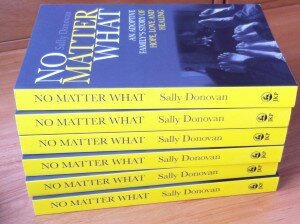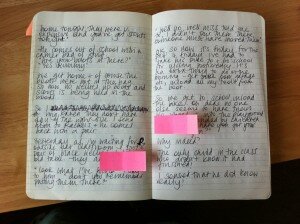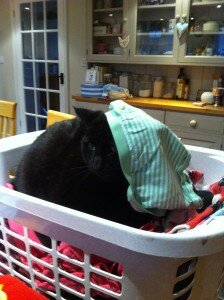‘No Matter What’ is my memoir about adopting two children from the UK care system. Yesterday I received a parcel containing six unblemished copies of the book from the publisher Jessica Kingsley. The process of writing it has been long and difficult and I’m not ashamed to say that the sight and feel of those books, my books, brought a tear to my eye.

A few of my blog readers have asked me about my writing process and have asked for advice on how they may write something of their own. So here, as succinctly as I can manage, is how I did it.
1. Living the Dream
Some say ‘write about what you know’, others say the opposite. I have lived every bright light and dark corner of my story and felt I had to tell it. I had a singular purpose: to show what it is like to parent an adopted child who has suffered neglect and abuse in their early lives.
2. Recording
Twelve years ago I started keeping a diary again. I felt I was on the cusp of living something out of the ordinary and knew it would be important not to lose any of it. It was also an outlet. Every moan, bitch, sadness, disappointment, frustration – the diary got it. It wasn’t pretty, but it was real.

3. First Steps
It was only when life had settled a little that I found the time and emotional energy to start writing properly. I wrote a couple of self-conscious chapters in the second person, past tense (‘she cried into her corn flakes’).
4. Serendipity
Although I am the least well-connected person you could come across, one day in the most unlikely of places I got talking to someone. She was a literary agent. She took a look at my chapters, liked them and suggested I rewrite them in the first person, present tense (‘I cry into my corn flakes’). Lots of serious writers are sniffy about books written in the first person, present tense. It is looked upon as a bit of a chav in the library. It worked for me. Mother Luck was taking care of me that day.
5. Hard Graft
I wrote for hours and hours and hours. I wrote at the kitchen table and in bed. I planned, I hand wrote, I typed, I redrafted, redrafted and redrafted again. I showed my work to my agent. She and her business partner took me on. They said ‘we think we can get this published, let’s write a proposal’. I bought a desk.
6. A Selling Job
The proposal was a bore to prepare, but it forced me to think hard about what I was writing and for whom. It contained a synopsis, chapter summaries and market information. The agency sent out the proposal to a list of publishers. Within a few days a large publisher said ‘yes’. That was easy!
7. Developing a Thick Skin
After weeks of saying ‘yes’ to the book (and please answer these hundred and one questions by tomorrow morning), the publisher then said ‘no’ and we were back to square one. It was a big disappointment. We brushed ourselves down, went back out to publishers and the same thing happened again.
8. Blogging and Tweeting
Despite the ‘two yeah but no buts’, the feedback coming from publishers was positive. They liked the book but didn’t think there would be a big enough market for a memoir about adoption. My agent said the words ‘blog’ and ‘twitter’. By this point I was parenting two traumatised children, I had a gardening business and I could barely open an email. It was a challenge. After watching many YouTube videos I launched my blog with a post about the London riots.
9. Serendipity (2)
One winter morning I woke up with a frozen shoulder and could barely dress myself, let alone pick up a spade. The upside was that suddenly I had lots of time on my hands. (Mother Luck, frustrated at my lack of focus, had sent me a a sign I could not ignore. Ouch.) Even typing with one hand I made great headway with the book and the blog. The blog was noticed by Community Care who paid me to write some blogs for them. The end was in sight. Once my shoulder recovered I decided to give up my gardening business and finish the book.
10. Signing the Contract
My agent sent out the completed book and the proposal to a final set of publishers. Within a few days Jessica Kingsley Publishers had said ‘yes’ and meant it. That was in January. Within a few days now the book will be available to order from Jessica Kingsley, from Amazon and other websites and may even make it into a book shop. I have been lucky to receive some positive reviews from some very generous people and I am grateful to all of them.
In no particular order they are Baroness Oona King, Sir Martin Narey, Lorraine Pascale, Carrie Grant, Hugh Thornbery, Professor Harry Ferguson, Camilla Pemberton, Louise Michelle Bomber, Sherry Malik and Jane Evans.
Thank you.

